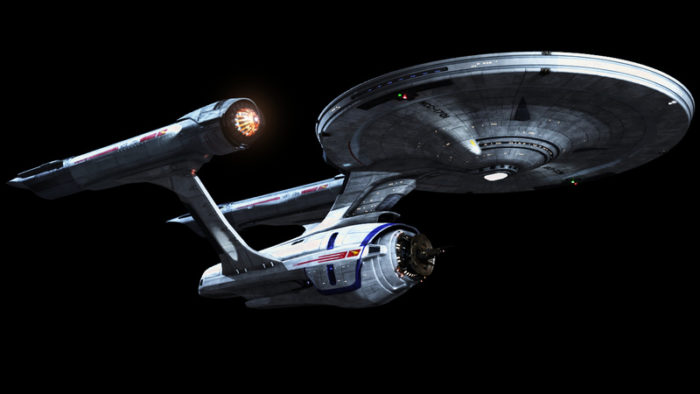
These reviews will contain spoilers.
David’s Log, stardate 01 February, 2019. I have recently made first contact with the Starship Enterprise. Age 32, and I still hadn’t seen a single non-Abrams entry. It’s not that I wasn’t interested per se – after all, nothing becomes a cultural juggernaut without having something to it (Adam Sandler aside). Still, there’s something about the franchise that’s always seemed a bit… Sad. It’s tough to pinpoint what makes Star Trek so much less cool than Star Wars, or even Doctor Who. It’s maybe in part due to their focus on rebels, or outsiders, in an unjust galaxy vs. protectors of the status quo in an idealised one. It’s simply easier to root for ragtag space misfits intent on fighting the powers that be than scientists working for an interplanetary bureaucracy: a floating UN. Who’d want to play at that as a kid?
It could also be down to the sheer volume of Trek. Since the first episode aired, in 1966, there’s been several canon time periods, set hundreds of years apart, with numerous characters, planets and alien races to juggle vs a handful of them in the chronicles of a single family. In that respect Star Trek is a bit like the Syrian war – once you think you’ve got a hand on it there’s something else you need to know first. It’s literally a universe you’re getting into. Still, one thing I know that’s true across incarnations is it emphasises the joy of discovery: a value so important the team named a whole darn show after it. So it was with an open mind, and a bottle of whisky, I went round a Trekkie buddy’s house – who’s always assured me I’d love it – to seethe first two. ‘But be warned’, he told me more apologetically than cautiously, ‘the first one isn’t the best’.
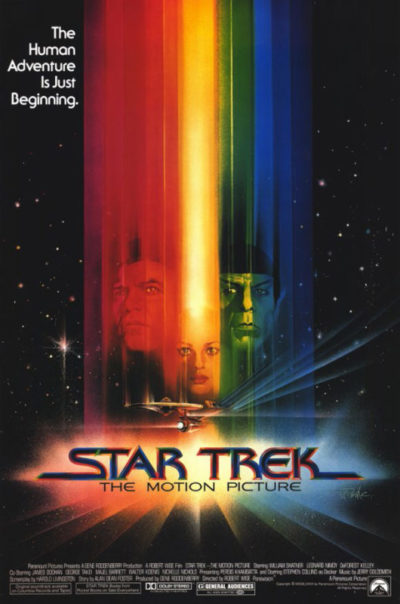
Star Trek: The Motion Picture (1979)
It better fucking not be. Twenty minutes in, and I was thinking about asking him to set the remote control to off. So this is the original movie, that beamed the Enterprise from the small screen to the big screen. Taking place years after the original series, it’s an easy starting point for would-be fan worried they’d need to know the full history of The Federation. In short, the crew have disbanded and are scattered all around the galaxy. Kirk’s far out of range as an admiral, Spock’s neutral about purging his emotions in a Vulcan ritual and Bones looks like he’s made ends meet with erotic movies. This is disrupted when an alien cloud, so powerful it chibs three Klingon ships before they can consider how best to serve revenge, is headed for Earth. The old gang need to get back together to save our planet, or die a very slow death trying.
‘Slow’ is the key word there. This film isn’t badly directed per se. But it’s incredibly poorly paced to the extent you wonder if the editors were being paid by the minute. It almost defies space and time – a temporal black-hole in which you actually feel yourself age. My best explanation is director Robert Wise (West Side Story and The Sound of Music) was less interested in making a space adventure, and more in making a space odyssey. Thus he dwells a lot, refusing to use a few seconds where hundred will do. Sadly he’s no Kubrick. I knew by reputation the film was slow, but wasn’t expecting that. It could be, in part, about the time it was made. A 10-minute scene of Kirk entering the Enterprise could have been epic for long-term fans back in the day, basking as much as him in seeing their beloved ship again. But nowadays the spaceship porn seems gratuitous, self-indulgent and really, really pointless. That Wrath of Khan borrows a fraction of the footage, and achieves the same effect, speaks volumes. I could forgive the man and vessel reunion if it were the only such instance. Unfortunately, there’s several such instances laced throughout, with it not even close to the worst offender. Don’t get me wrong, the film is often visually striking. Though numerous special effects driven blockbusters later, and it seems like space itself: big and empty.
This isn’t helped by an austere script that does little to serve its characters, largely treating their dialogue as a sound effect before the next prolonged set piece. I’m sure there’s some subtext about aging, and mortality, but there’s very little interplay or conflict between the crew with what little we hear being functional (‘let’s go there and do this’ style). I’d be surprised if there was even 40 minutes of dialogue in this misguided attempt at a magnum opus. Minus all the long shots of ships, there’s probably enough content for a half-decent episode- albeit not a very dramatic one. Yeah there’s a baddie, Vger threatening to destroy our world – though they’re about as threatening as my friend offering me a much needed top-up. To be fair, V’Ger’s got a semi interesting origin, but very little motive for wanting to take so many lives. A nondescript villain that’s all flash and no substance i.e. just a bit of dick. The way he’s defeated without blasters, but a melodramatic gesture from a similarly nondescript character, doesn’t do the excessive build-up justice.
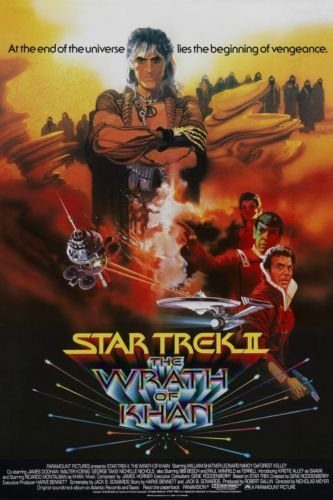
Star Trek II: The Wrath of Khan: 1982
That’s better. Here, to resolve what’s widely known as the curse of the odd numbered Treks, is the second entry: Wrath of Khan. A follow-up that’s better than the original in every conceivable way. I’ve tried hard, but can’t think of a single sequel that improves upon its forerunner so much (the closest is Wes Craven’s New Nightmare coming after Freddy’s Dead). But more than just being a good sequel, it’s a genuine sci-fi classic in its own right. Maybe the film’s biggest achievement is how well series newcomer Nicholas Meyer combines the wonder of space with close quarters tension. This time the threat is far better personified, with Khan (who appears in an episode of the TV show you don’t need to see to see first). He has both a menacing presence and an entirely justifiable gripe with his nemesis Kirk, who left him and his unlucky followers on a failing planet. Among the casualties ensued is his wife. As such, it’s no wonder he wants to get revenge on the now aged admiral.
In contrast to its pompous predecessor, Wrath of Khan shows less can be more. What’s remarkable is how much tension the film generates despite our hero and villain never actually meeting: for both, it’s as much an internal battle. Though Khan is one foe, the other is time itself. Kirk’s gotten old, spending his years behind a desk rather than the captain’s chair, thinking of flights of fancy long since passed. Although Shatner’s often the butt of jokes, for his diet of mostly scenery, here he’s controlled and at his somber best. It helps that he’s got a lot to work with: an early scene between him and DeForest Kelley does more for both of their characters than the whole 2.5 hours of the motion picture. Kirk is experienced, but in his cold comfort he’s become rusty and lost his edge. In contrast, Khan is inexperienced but all the more daring because of it. I’ve never seen Ricardo Montalban in anything else, though I’d like to. Here he gives his character an anarchic energy without lapsing into the cartoony. For him, this isn’t just about getting his own back – but fulfilling an obsession that’s kept him alive for years. Their cat and mouse game throughout is genuinely thrilling, with the advantage switching like a tennis game. The final between-ships duel resembles an intergalactic navy battle, as the story builds to a climax as intimate as it is spectacular. Granted, the reduced budget means it’s not as grand as last time. Yet since the writers can’t rely on the special effects to overshadow the story this time, they’re called upon to service it – which they do excellently. Then we come to the bittersweet finale.
Throughout there’s a tension between the lightest and darkest of parts of human experience: Khan’s venomous hatred is matched by the bond between Kirk and his crew. Nowhere is this better exemplified than the selfless sacrifice of Spock, who has side-lined for much of the movie but gets his time to shine. Though pop culture had taught me what to expect, his dying moments were more heart wrenching than I was ready for, giving a real sadness to what victory there is. Still, as illustrated by his coffin rejuvenating the Genesis planet, after death there’s the chance for spiritual rebirth. Nowadays it’s easy to scoff at the idea of Spock being written out, with most franchises bending the rule that dead means dead every other entry. But itwas a pre-internet age, where onset photos didn’t get leaked every month and rumours didn’t spread before the script’s even been finished. Moreover, given the first was a partial flop the creators were taking a gamble knowing viewers may never have gotten to boldly go where no man has gone before again. Whether it’s a good thing or a bad thing they do, I aim to find out soon.
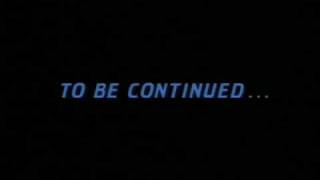




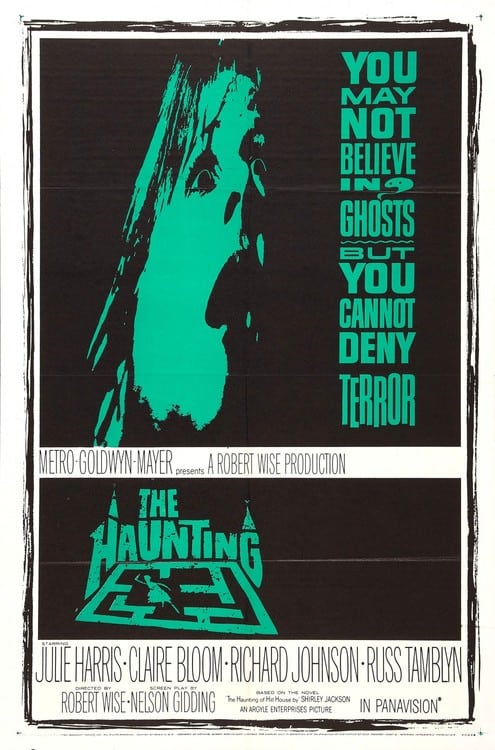
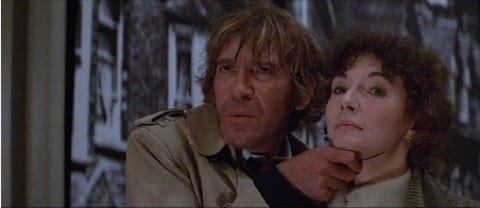
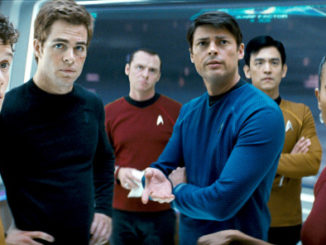
Be the first to comment